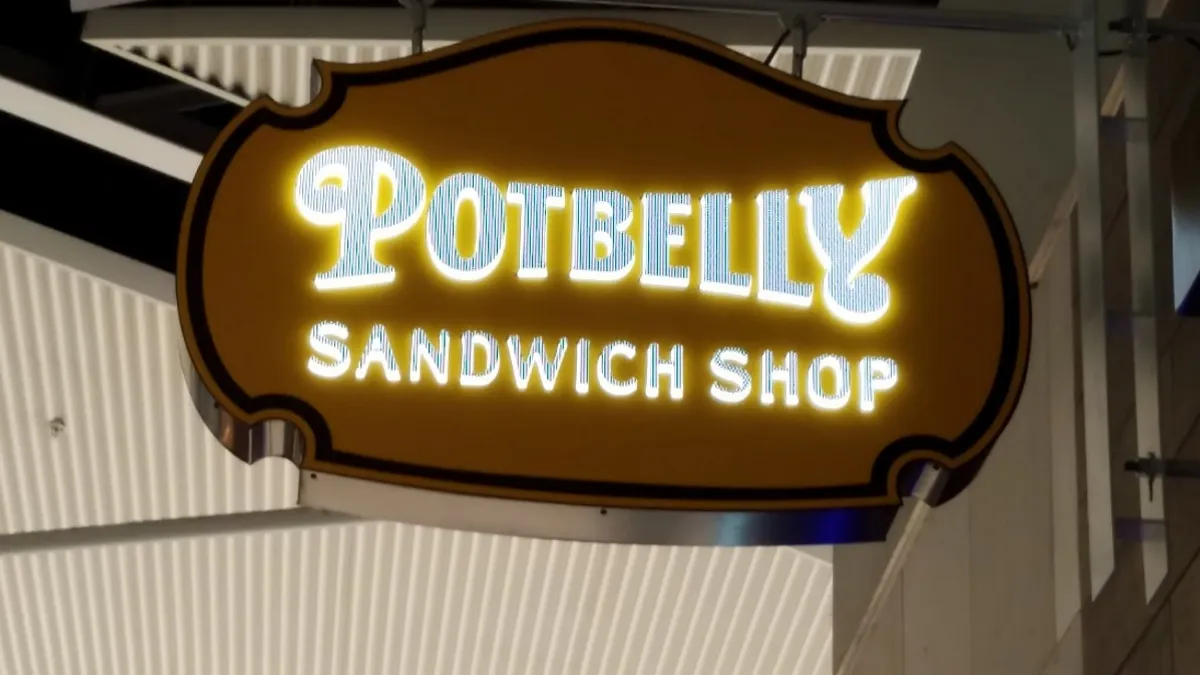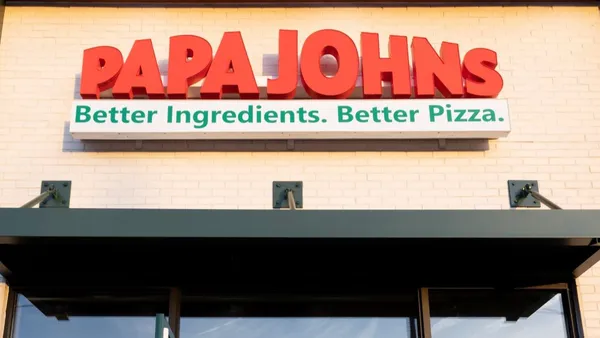Dive Brief:
- Due to the economic conditions related to COVID-19, Potbelly is unsure that it will be able to meet its financial obligations with its lender within one year from the financial statement issuance date, according to the company’s 10-Q filed May 19.
- While the company was able to meet its obligations in April and May, it concluded that without any changes, it would not be able to do so beginning in June, at which point lenders would have the ability to demand repayment of the outstanding debt.
- Potbelly is in ongoing negotiations with its lender, JP Morgan Chase Bank, to amend its credit agreement to maintain its financial covenants, but it is also evaluating additional ways to improve liquidity, such as lease concessions and deferrals, further reductions of operating and capital expenditures and raising additional capital.
Dive Insight:
Potbelly’s financial woes related to the novel coronavirus pandemic appear to be deepening. Last week, it told investors it would likely have to close up to 100 underperforming shops permanently as part of its strategy to improve its financial position. Its comp sales declined 68% in March even though it started the year in positive territory, but has since improved to negative 45%. This news could bring additional activist investor pressure just as it reached a settlement with an activist group in last week.
While Potbelly is currently negotiating with its lender, violating debt covenants is problematic for companies because lenders could demand penalty payments, increase interest rates, increase more collateral, demand full repayment or terminate the debt agreement, according to the Corporate Finance Institute.
On March 17, the company drew down $39.8 million under its revolving credit facility as a precautionary measure to increase cash position and preserve financial flexibility, which was made available with a previous amendment signed in 2019.
On May 15, its credit agreement was further amended to remove a $20 million expansion feature as well as revisions to its interest rate and change the maturity date from July 31, 2022 to March 31, 2022. The company repaid $15 million of outstanding borrowing when it signed this agreement and could re-borrow it when cash balances held by JP Morgan are below $28 million. Potbelly is also required to pay a fee of 1% of the outstanding balance within 15 business days. These terms could change depending on current negotiations, however, and likely could become more stringent.
The sandwich chain is considering additional ways to improve liquidity, including rent concessions, but other large chains have also been pushing landlords to defer rent. Starbucks, for example, asked to defer rent for a year starting in June. Chipotle and Shake Shack are also trying to negotiate with property owners to revise leases, but landlords are starting to push back, saying companies like Starbucks — which has an $86 billion market cap —should be able to raise more debt or equity, according to The Wall Street Journal.
While Potbelly’s situation is different — it has about $500 million in market capitalization as of May 19 — this shows how landlords are becoming increasingly unwilling to budge on rent. This could make it more difficult for Potbelly to use rent as a way to improve its liquidity, adding more financial burdens for the chain.














